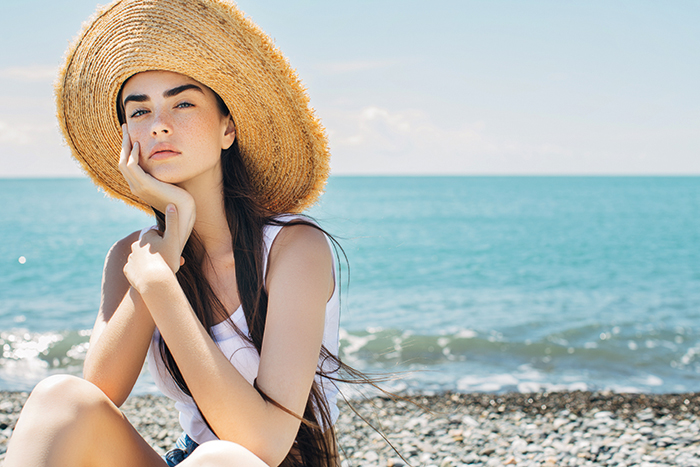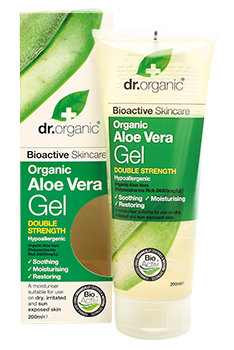Advice

Sun Set
In Advice
Bookmark
Record learning outcomes
Whether they are flying off to a tropical destination or planning to enjoy the great British summer, customers must be well advised on staying safe in the sun.
 
Â
Summer is finally here and most of us will be looking forward to spending some time in the sunshine, but just five minutes outside without adequate sun protection is damaging, according to studies. Cancer Research UK warns that getting sunburnt just once every two years can triple our chances of developing skin cancer, so it’s imperative to keep skin well protected from potentially harmful UV rays.
UV EXPLAINED
Whether it is cloudy or sunny outside, experts recommend slathering on sunscreen every day to protect skin from UV damage. The sun emits both UVA and UVB rays. “Hot UVB rays are a threat on sunny days – they tan and burn the top layer of the skin. UVA rays are present even on overcast days, and they can penetrate the deeper layers of skin causing cell damage, which contributes to wrinkles, volume loss and skin cancer,†advises Dr Iaisha Ali, consultant dermatologist at The Harley Street Clinic.
SUNSCREEN SHOPPING
When it comes to recommending sunscreen, tell customers to look out for its SPF (sun protection factor) rating, which relates to the level of UVB protection that the product offers. It also needs to contain UVA defence, which is specified by the star-rating system.
For the best level of protection, dermatologists recommend using sunscreens labelled ‘broad-spectrum’ with a five-star rating, which shield from both UVA and UVB radiation.
Customers should also shop for the appropriate SPF for their skin tone. “Those with very pale skin that burns easily should wear a minimum of factor 30,†says Dr Ali. “Olive and Indian complexions tend to tan easily and can also burn with excessive sun exposure – an SPF of at least 20 is recommended. Afro-Caribbean people rarely suffer from sunburn. This is because they have more protective melanin in their skin, but they are not completely immune from sun damage – an SPF of 15 is ideal,†she adds.
Sun Safety Quick Tips
Give it time
Sunscreen should be applied half an hour before sun exposure to give it enough time to absorb.
Use enough
In order to get the level of defence stated on the bottle, apply TWO TABLESPOONS of sun protection product to the body and HALF A TEASPOON to the face.
Seek shade
Avoid sun exposure between 11AM AND 3PM, when the sun is at its strongest.
Cover up
Cover up in LIGHTWEIGHT PROTECTIVE CLOTHING and a WIDE-BRIMMED HAT, which will shield the head, neck and ears.
Protect the eyes
Pick sunglasses marked with the CE SYMBOL – these meet the European standard for UV protection.
SUN PROTECTION FOR ALL
Sun care formulas have developed in leaps and bounds over the past few years and the latest products can address customers’ every need:
Sun worshippers
“Those planning on sunbathing on their summer break should wear an SPF of no less than 30, and since swimming and sweating can make sunscreen less effective, frequent reapplication is essential,†advises consultant dermatologist Dr Justine Hextall. “Regardless of whether the bottle says ‘all day protection’ or how high the SPF is, it’s important to reapply sunscreen every 90 minutes,†she adds. Hawaiian Tropic Silk Hydration Air Soft Continuous Spray SPF30 (RRP £15.99) has a refreshing, fast-absorbing formula
containing natural silk proteins that deliver deep moisturisation – it’s perfect for beach-side use.
City dwellers
Exposure to UV radiation isn’t just an issue at the beach; UVA and UVB rays are prolific in city life, even on gloomy British days. Whether sightseeing or sitting at a desk working, using sunscreen is crucial. Those on-the-go will like Garnier Ambre Solaire Sensitive Advanced Protecting and Hydrating Face Mist (RRP £10). The convenient spray has a non-greasy formula that can be used over make-up and it also has an antipollution effect. Murad City Skin Age Defense SPF 50 (RRP £45), meanwhile, shields skin from the blue light emitted from computers, infrared radiation, pollution and UV rays.
Sporty types
Those going on activity holidays or partaking in outdoor sports this summer should be advised
to reapply sunscreen after excessive sweating. A product like Ultrasun Sports Formula Transparent Sun Protection Gel SPF30 (RRP £24) is fast absorbing and water-resistant.
If frequent reapplication is not possible, a longwearing formula like P20 Continuous Spray SPF30 (RRP £24.49) promises ten hours of protection and features a new, multi-angle dispenser that is great for targeting
hard-to-reach areas.
Children
Young skin is particularly vulnerable to the effects of UV rays. “Babies under six months have little melanin in their delicate skin and it is too sensitive for sunscreens, so it’s important that they are kept out of direct sunlight,†explains Dr Anjali Mahto, consultant dermatologist and spokesperson for the British Skin Foundation. “Toddlers and older kids should wear a broad spectrum sunscreen with a minimum of SPF 30,†she advises. Calypso SPF 30 Kids Blue Spray Lotion (RRP £4.99) has a blue-coloured mist to ensure
all exposed skin is covered.
Problem skin
Sensitive skin types or those prone to breakouts may be better suited to mineral sunscreens, which are made with ingredients like zinc oxide and titanium dioxide. “Unlike chemical sunblocks, which work by absorbing UVA and UVB rays, these physical blocks sit on the skin’s surface and form a protective barrier, so UV rays bounce off them,†explains Dr Hextall. “They are less oily and better tolerated by those with sensitive and oily skin,†she adds.
Suggest new Avène Cleanance Solaire SPF 50+ (RRP £16), which contains monolaurin to block excess sebum, zinc to calm redness and silica to absorb oil.
Image conscious
Sticky application and a chalky white finish are some of the common complaints associated with sunscreens of old, but the latest formulas feel comfortable and are almost invisible on the skin. Take Elemis Pro-Collagen Marine Cream SPF 30 (RRP £82), which uses a new micronised filter that provides high SPF with lower concentrations of sunscreen actives. The result is a facial moisturiser formula that is ultra comfortable and blendable.
For the body, Clinique SPF 30 Virtu-Oil Body Mist (RRP £25) has a cooling, oil-free formula – a brilliant option for darker skins that can turn ashy when using traditional formulas.
Caring for skin after sun exposure
 Aftersun products replace lost moisture from the skin’s surface and nourish it with the nutrients it needs to recover from the effects of UV rays. Suggest gels or lotions infused with cucumber or aloe vera, such as Dr. Organic Organic Aloe Vera Gel (RRP £6.99). Aloe Vera is well known for its soothing and calming effects, making it ideally suited for use in skincare products to soothe and calm sensitive, delicate and dry skin. It enhances natural cell renewal, improving texture and elasticity to leave skin firmer, more supple and
Aftersun products replace lost moisture from the skin’s surface and nourish it with the nutrients it needs to recover from the effects of UV rays. Suggest gels or lotions infused with cucumber or aloe vera, such as Dr. Organic Organic Aloe Vera Gel (RRP £6.99). Aloe Vera is well known for its soothing and calming effects, making it ideally suited for use in skincare products to soothe and calm sensitive, delicate and dry skin. It enhances natural cell renewal, improving texture and elasticity to leave skin firmer, more supple and
luminous. This double strength hypoallergenic Organic Aloe Vera Gel is an all-over body therapy moisturiser that instantly cools and soothes and is suitable for use on dry, irritated and sun-exposed skin.
Severe redness or a stinging sensation is a sign of sunburn. Dermatologists recommend applying a cool compress to the skin for 15 minutes, or taking a bath or shower with lukewarm water. “Gently pat skin dry then apply an unperfumed lotion to reduce peeling – a product containing aloe vera will soothe and cool the skin,†advises Dr Mahto.
